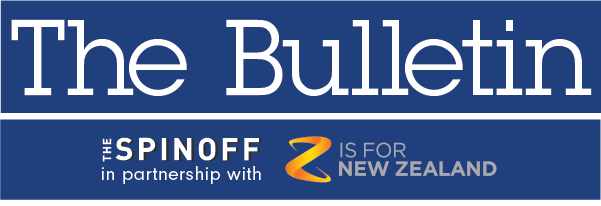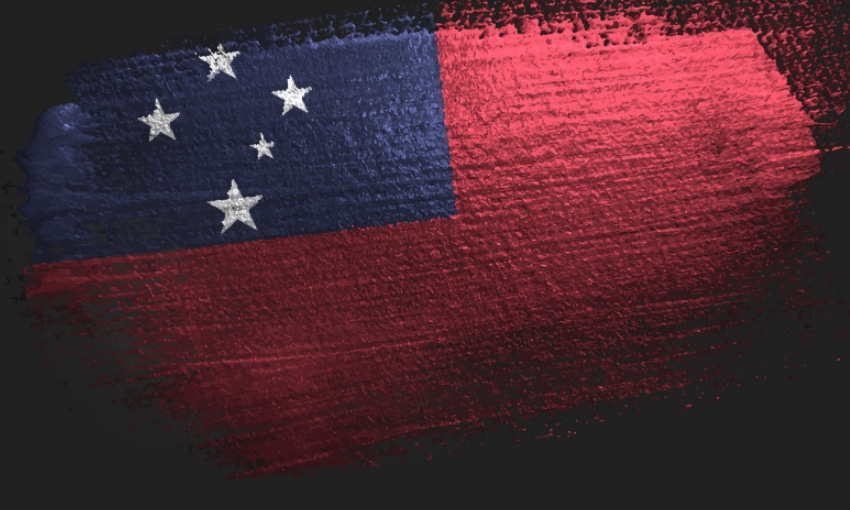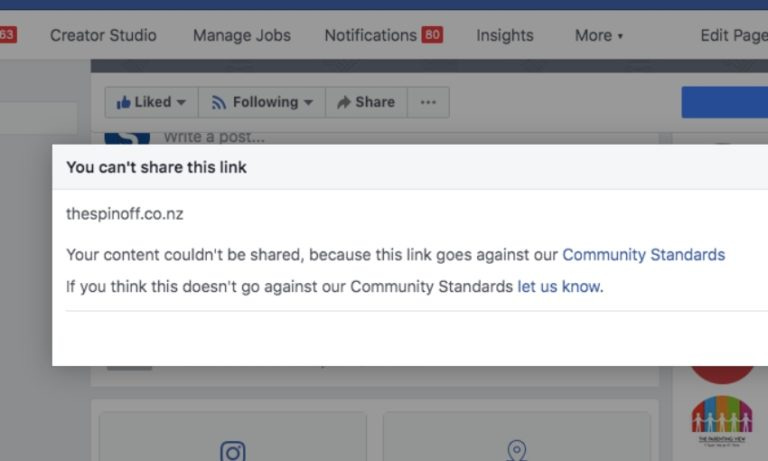
Good morning and welcome to The Bulletin for Thursday 19 March, by Alex Braae for The Spinoff. Presented in partnership with Z Energy.
In today’s edition: Suspected case of Covid-19 in Samoa, MFAT urges NZers overseas to come home, and aviation support package to be announced today.

(Getty Images)
A suspected case of Covid-19 is currently being tested in Samoa, bringing to light concerns that the coronavirus could be devastating in the Pacific. Stuff reports the person being tested is an Auckland resident, who flew to the country on Wednesday last week. He then presented to hospital in Samoa yesterday morning, after having flu-like symptoms for two days. If it is confirmed, it would be the country's first case. Contact tracing is currently underway, and because the samples had to be sent to Australia for testing, results will not come back in for 10-20 working days.
A major fear that health authorities around the world have with Covid-19 is that spikes in cases can overwhelm the health system, meaning that people with all sorts of conditions suffer. This is particularly the case with the Pacific, where resources are already incredibly stretched. We all saw last year how badly Samoa was hit by the measles epidemic, and everyone will be striving to avoid a repeat of that. Those views are expressed strongly in this piece in the Samoa Observer by Sapeer Mayron, who spoke to a doctor about the measures being put in place in their clinic. This other Samoa Observer piece by Soli Wilson focuses in on the effect that an outbreak could have on staff themselves – further stretching the capabilities to fight off the virus.
Because of those concerns, border control for Pacific nations remains the most important line of defence. The Spinoff's Alice Webb-Liddall has gone over a series of countries and outlined how strict the measures are for each. Most are banning cruise ships, and in the case of Nauru all but one fortnightly Brisbane flight has been cancelled. The economic effect that it takes on all of them will be severe and painful, given the importance of tourism in the region, but it's a price they have no choice but to pay to protect people.
Back in New Zealand, there has been a spike in confirmed cases – that is covered off among other important news in our live updates page from yesterday. It's important to note that all of those cases are related to international travel, and there is still no confirmed case of community transmission within New Zealand. Police checks are being carried out on overseas arrivals to make sure they're self-isolating as they should be.
And a large-scale contact tracing effort is underway relating to the Logan Park High School student who tested positive. They had around 150 close contacts, all of whom will need to go into self-isolation. A correction from yesterday – I wrongly said that the school would be closed for two weeks, when as of yesterday the correct info was two days. But that has now been extended further to at least next week to ensure the safety of all staff and students. According to the ministry of education, in general terms, all schools will continue to stay open for the foreseeable future, however contingency plans are being made for individual schools with suspected or confirmed cases to be rapidly shut down and cleaned.
Just quickly, a message from a reader:
“The Spinoff combines the highest calibre of reporting with cackling humour. It’s an easy way to support a great team to make great journalism.” Shivarn Stewart, Spinoff Member.
Support our work. Join The Spinoff Members.
MFAT has advised New Zealanders temporarily overseas to try and return home immediately, in an update to their general Covid-19 travel advice. They also say that all non-essential travel to other countries should be deferred or cancelled. A reminder – regardless of citizenship status, all arrivals will be required to self-isolate for 14 days. There are an estimated 80,000 New Zealanders currently travelling overseas, all of whom will have people back home hoping for their safety, and those who decide to stay are being told to follow the advice of local authorities and keep people informed of their plans.
An aviation industry support package will be announced today in Queenstown, and is expected to contain more specific details about Air NZ. As the NZ Herald's (paywalled) Grant Bradley reports, the national carrier is right up against it, having already made savage cuts to schedules and with heavy job losses on the way. That's a worry for the whole country, because Air NZ are a vital link in the supply chains connecting New Zealand to the rest of the world.
I have no doubt this piece will be very useful to a lot of readers right now. Sole traders and freelancers are able to apply for the wage subsidy scheme as well, and Leonie Hayden has laid out exactly how to apply. Almost 400,000 people are in this sort of working situation, and because of the wide ripple effects taking place through the economy many will be affected.
And another Spinoff story that's really worth reading: Josie Adams reports that backpackers and travellers who have just arrived in the country have found self-isolation options to be limited. A note about this story – everyone spoken to for it wanted to follow self-isolation guidelines, so the message is clearly getting into tourist circles that it's very important. But the concern is that it's not reaching them before arrival, meaning isolation procedures come as a shock.
We’re running daily updates on Covid-19 news – for all of the latest updates, please go here at any time of the day.
Abortion law reform has been passed by parliament, and it will no longer be part of the Crimes Act, reports Newshub. Previously, abortions could only be performed through a legal loophole, which was widely seen as a barrier in getting the procedure. Many arguments and speeches have been made on the topic, but the last speech of the night – a storming call in support from National MP Amy Adams – was a fitting way to bring to an end the 44-year tenure of the existing law.
There had been an attempt to take it to a referendum, reported Stuff earlier in the day. That came from NZ First MP Darroch Ball (like what is now happening with the End of Life Choice bill) but it failed by a large margin of 100-19. The margin on reform was in the end much closer, with 68 MPs in favour, and 51 opposed.
Fonterra have dropped their interim dividend, because of the threat posed by Covid-19 to revenue. Farmers Weekly reports their first half results were actually pretty good, with net profit well up on the previous year. However, in a sign of what might worry them, dairy prices at the latest Global Dairy Auction fell again yesterday, for the fourth time in a row.
GNS scientists are currently keeping a close eye on the water temperature in the Ruapehu crater lake, reports Newshub. The temperature has shot up from 24C to 40C in the last several weeks. Unusual activity like this doesn't necessarily mean an eruption is imminent – but a reminder, Ruapehu is an active volcano so could erupt with little warning.
Got some feedback about The Bulletin, or anything in the news?
Drop us a line at thebulletin@thespinoff.co.nz

Right now on The Spinoff: Intensive care doctor David Galler writes about the mood on the front line, and how wider public health measures can make their next few months easier. Rhys Jones writes about the Covid-19 response and why equity for Māori must be prioritised. Dr Sarb Johal, in unrelated news an expert in disasters and pandemics, writes about ways to make working from home easier. Duncan Greive reports on a bizarre situation in which The Spinoff got blocked from Facebook for supposedly unreliable information (it wasn't unreliable.) And Andrew Geddis writes about the upcoming election, and the potential for it to be delayed.
Those of you in the media industry will be sad (or secretly pleased) to hear that the Voyager Awards have been postponed. To mark this news, for a feature today I thought I'd share two pieces on largely the same topic, from two journalists who (let's be honest) were probably going to win all the awards anyway. Both the NZ Herald's Kirsty Johnston, and Stuff's Charlie Mitchell, have looked at the lessons of the 1918 influenza pandemic, and how the bungled response then could save lives now. I'll take a paragraph from each and not tell you who wrote them, you'll just have to read both.
Basic errors by the Government and local officials made the disaster much worse: A lack of planning, political squabbling, and a reluctance to disrupt the economy fuelled the spread of the virus which, six weeks after it began, had killed upwards of 9000 New Zealanders, including a shocking five percent of the Māori population.
The world was at war, so there were lots of troops moving around the world - including coming back to New Zealand where they then scattered back to their homes. There was no pandemic plan then. New Zealand had early warnings of the infection from events overseas but they were largely ignored, and the government of the day was slow to react. Unlike in Australia, where they enforced strict maritime quarantine, New Zealand didn't close its borders or quarantine troops.
Selection criteria for the NZ Olympics team has had to be hastily rewritten by the NZOC, because of qualifying event cancellations, reports Stuff. It's a process that takes more than just deciding there's a new standard – the new criteria will also have to stand up to the scrutiny of potential legal challenges. In any case, it may well all be academic – while organisers are adamant the Olympics will continue as scheduled in July, that seems rather optimistic in the current climate.
And the NZ Herald have had a scoop relating to the mooted domestic Super Rugby competition. They've reported on a leaked document, in which it was revealed that NZ Rugby's key priority at this time is providing content for broadcaster Sky – that's not exactly a shock revelation either, but it's still pretty stark to see written down. It's all on a bit of a knife edge at the moment, as the situation is changing so quickly that planning even a few days into the future is difficult, let alone a ten week competition.
That's it for The Bulletin. If you want to support the work we do at The Spinoff, please check out our membership programme.




